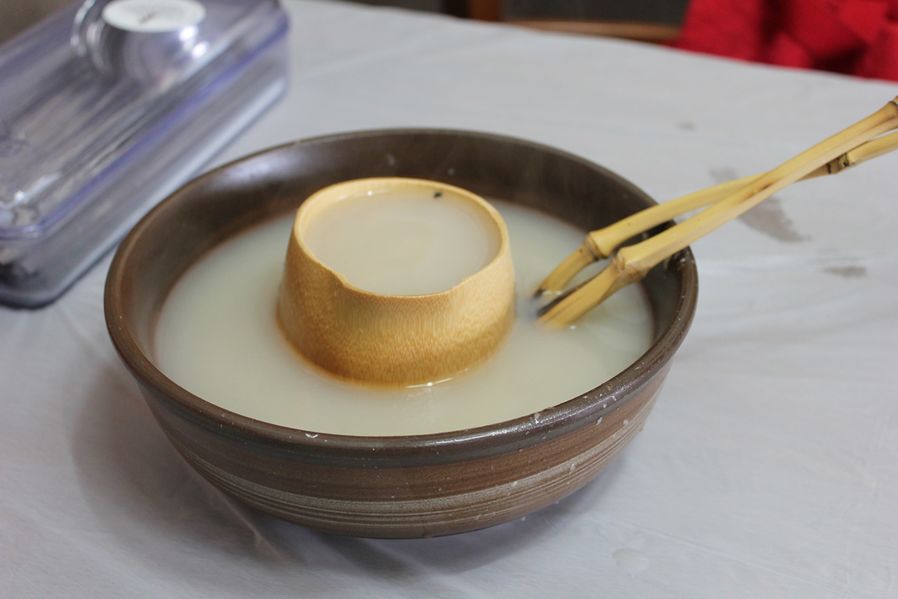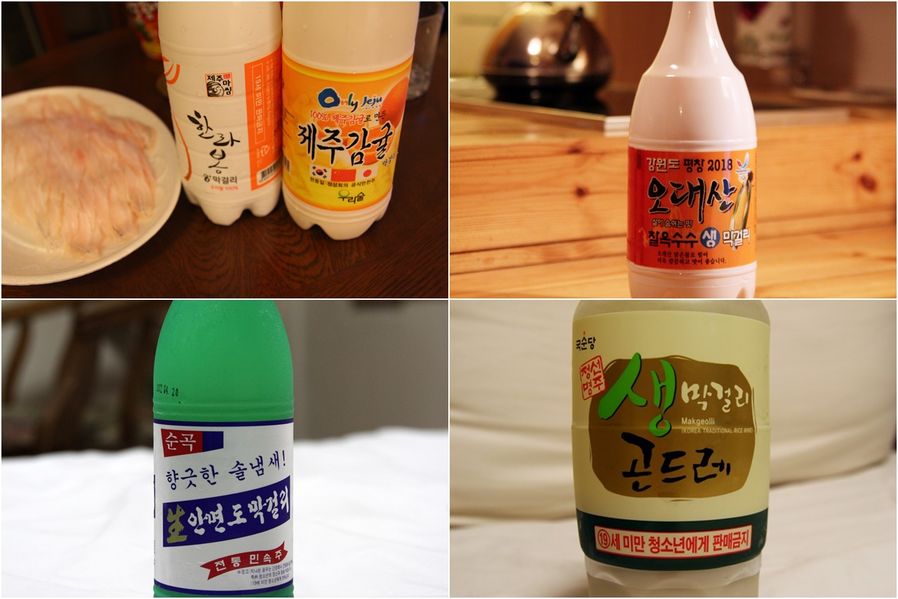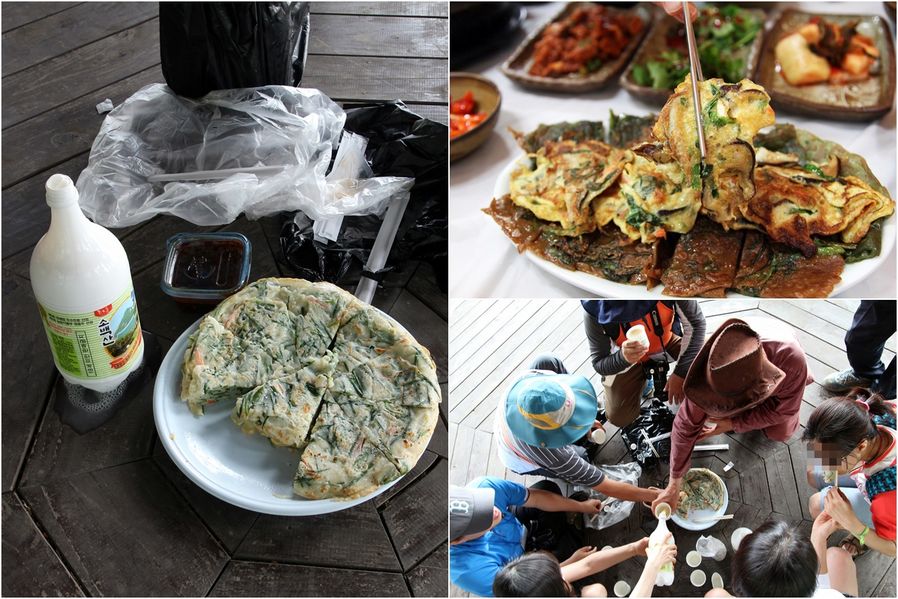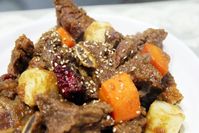1.Ingredients for Makgeolli
-Primary ingredients: Rice
-Secondary ingredients: Nuruk (fermenting agent) and water
2. Taste evaluation
-Spicy:☆☆☆☆☆
-Salty:☆☆☆☆☆
-Sweet:☆☆☆☆☆
-Sour:★☆☆☆☆
-Toasted flavor: ★★★☆☆
3.
Introduction to Makgeolli(raw rice wine)
Makgeolli
is an old traditional alcohol with longest history and it’s as
famous as Japanese traditional alcohol throughout the world. Since
it’s made from rice, barley and wheat flour and fermented, it has
unique flavor of grains and pungent taste.
It’s
delicious alcohol that you can drink lightly because of its low
alcohol content.
There
are numerous documents regarding how to make alcohols in Joseon
Dynasty era but not before that.
It
is assumed that Makgeolli was consumed since Goryeo Dynasty era under
the name of Takju, Baekju or Bakju but the official record dates back
to Joseon Dynasty era.
The
documented record was first found from Joseon Dynasty era in 1837
under the name of Hondonju, and the law in terms of manufacturing
Makgeolli was standardized under the Liquor Tax Act in the 1890s.
But
using rice to make Makgeolli was banned in 1964 due to food shortage.
So
they started to use wheat flour and corns instead of rice, however,
it was abandoned by people because of decreased taste.
Since
the rice production rose in 1971, rice Makgeolli was allowed again
with improved taste but the people preferred Soju and beer.

Canon EOS 550D | f/4.5 | iso 800 | 2011:03:28 14:27:19 | Flash did not fire, compulsory flash mode | 33mm
Makgeolli
became popular from 2009 and now it’s getting all the attention
throughout the world.
This
is because of good reputation as ‘healthy alcohol’ not just the
one that makes you drunk easily.
If
you look at the process of manufacturing Makgeolli, you’ll see that
grains including rice, sticky rice, barley and what flour are
steamed, cooled down, mixed with water and fermented at a constant
temperature.
Makgeolli
has relatively low alcohol content, 6-8%, and grains make you full so
you can control the amount of alcohol as you drink.
If
you drink enough amount of Makgeolli, it helps with your blood
circulation that leads to a healthy drinking habit.
Since
Makgeolli is made from grains, it is delicious but it tastes sour at
the same time because it’s fermented. And pungent taste makes it
taste better like carbonated water.
But
the sweet and pungent taste is not coming from traditional Makgeolli
but was added to it since the manufacturers applied a new technique.
Makgeolli
is so delicious and has low alcohol content so that everyone can
drink as long as they’re adults. I bet that if you drink this
healthy alcohol in the evening and get a nice sleep, you will feel
relaxed from tiring trip.
Searchon Wikipedia
4.
Kinds of Makgeolli
Makgeolli
has not lost its popularity one bit since it was exported and got
popular in 2009. Fueled by its popularity, many companies have
invented different kinds of Makgeolli using different ingredients.
Easily
accessed ones at the market or convenience store would be rice
Makgeolli, which is cheap, and high-class Makgeolli with different
tastes including sweet potatoes, Omija(Schisandra fruit), green tea,
and so on.
Plus,
each region has made Makgeolli using its special product that sums up
hundreds kinds of it.
To
name a few, there are Jat-makgeolli (pine nut) in Gapyeong,
Gyul-makgeolli (tangerine) in Jeju and Bam-makgeolli (chestnut) in
Gongju.
If
you travel other regions than Seoul in Korea, I want you to try each
one in different cities. 
5.
How to enjoy Makgeolli even more
Japanese
people enjoy Makgeolli with spicy food because of its toasted flavor.
But
Koreans have enjoyed Makgeolli with Buchimgae since a long time ago.
Makgeolli
was like rice because it’s made from wheat and rice for the people
who could not afford a proper meal and alcohol so they started to
drink it with some simple dish called Buchimgae.
The
culture has been passed down until today so you’ll notice that
Makgeolli bars look simple and small.
There
are many kinds of Buchimgae but mostly people enjoy Pajeon and
Nokdujeon(Bindaeddeok) when they drink Makgeolli.
Both
Buchimgae taste greasy because they are pan-fried in oil. That greasy
taste somehow goes well with sour Makgeolli.
But
there are many other kinds of Buchimgae people enjoy while they drink
Makgeolli..











